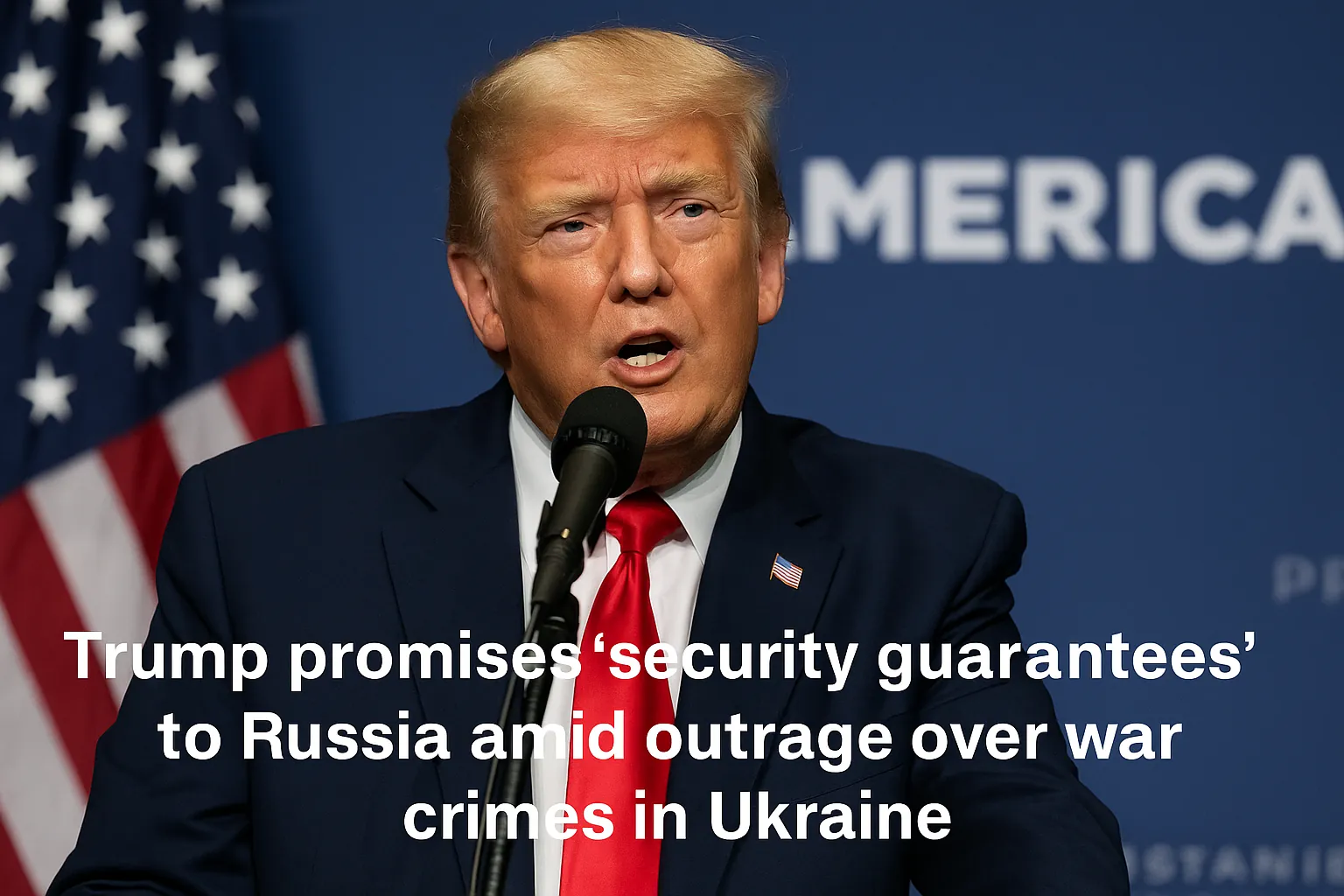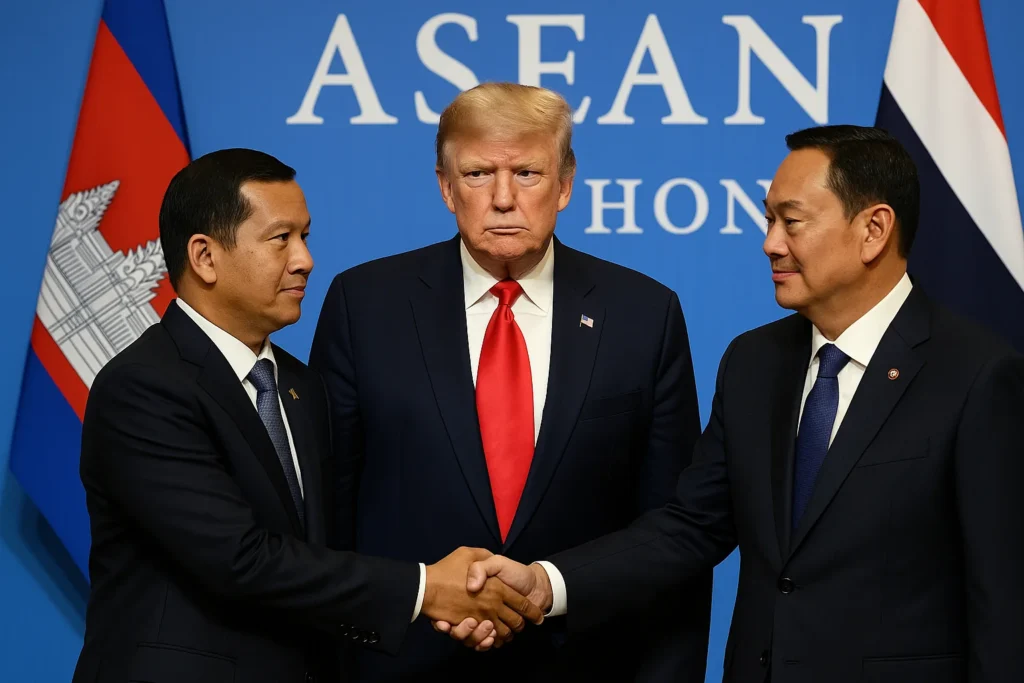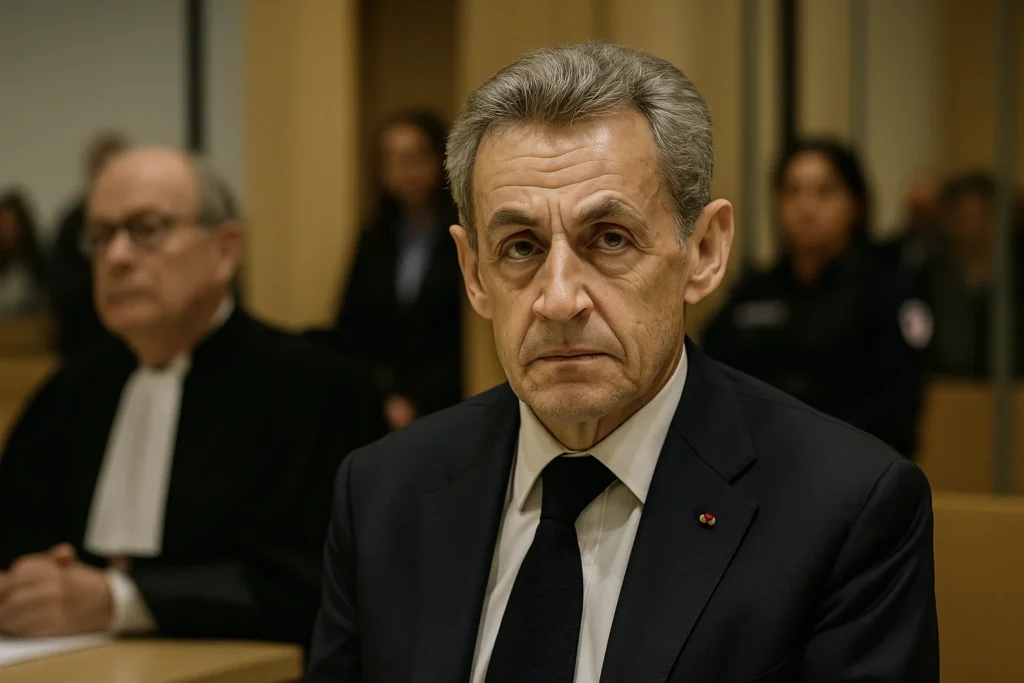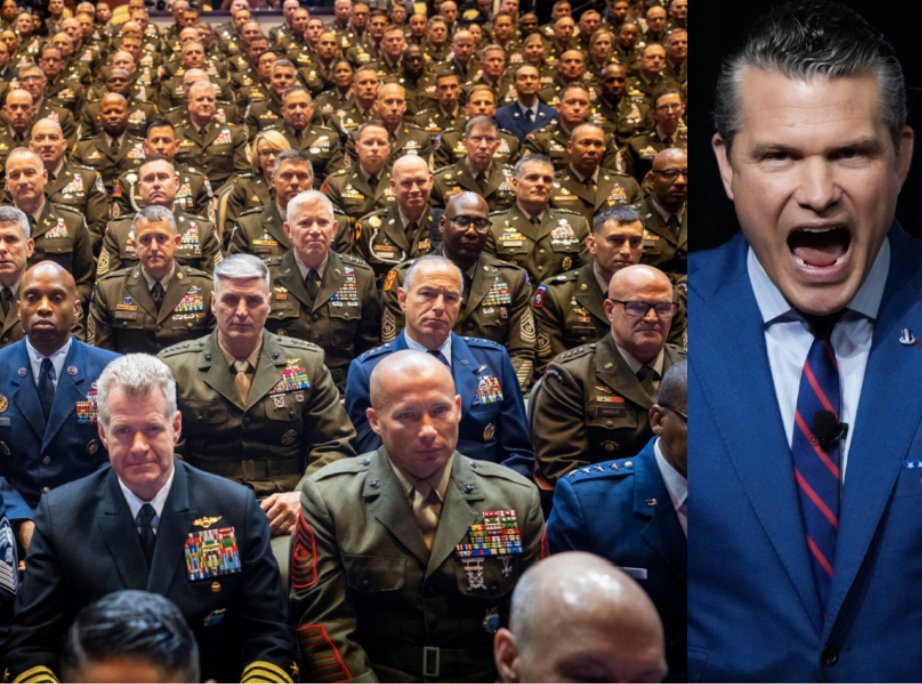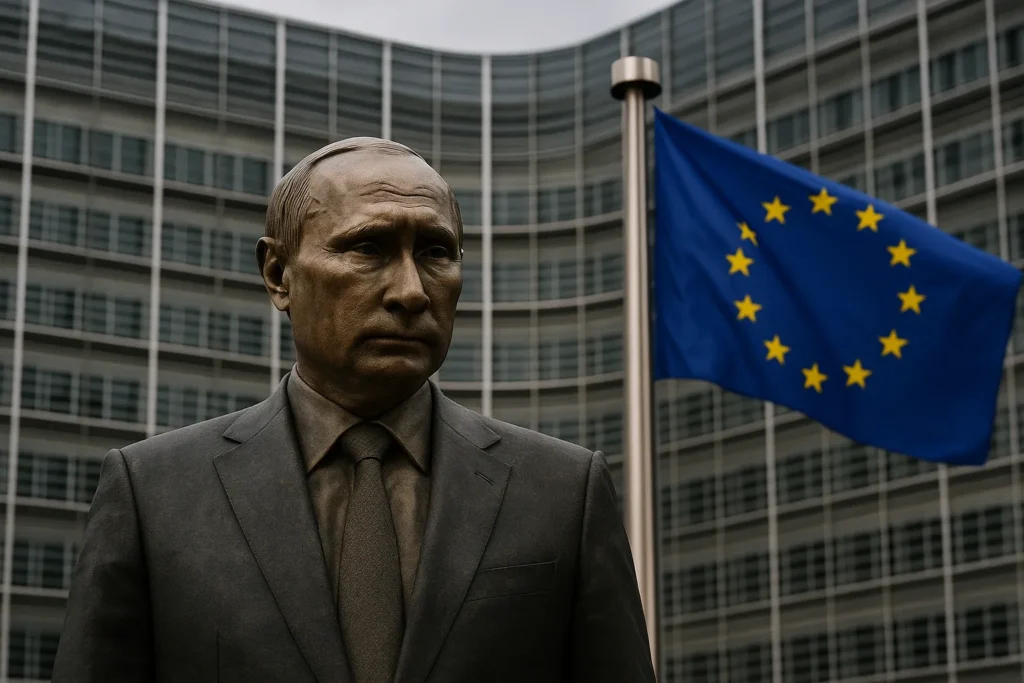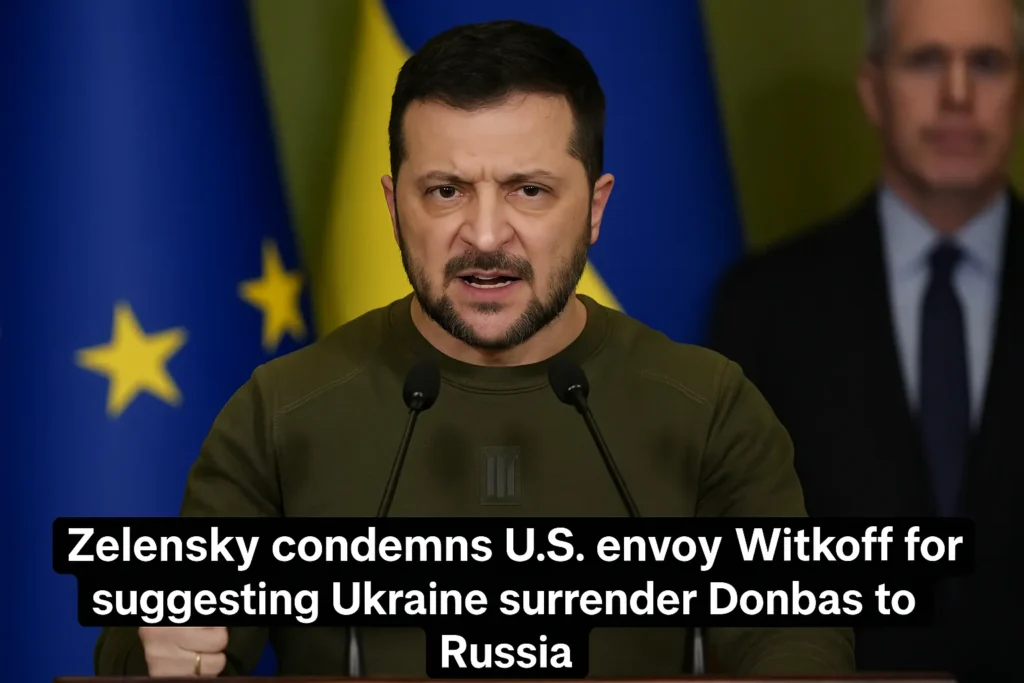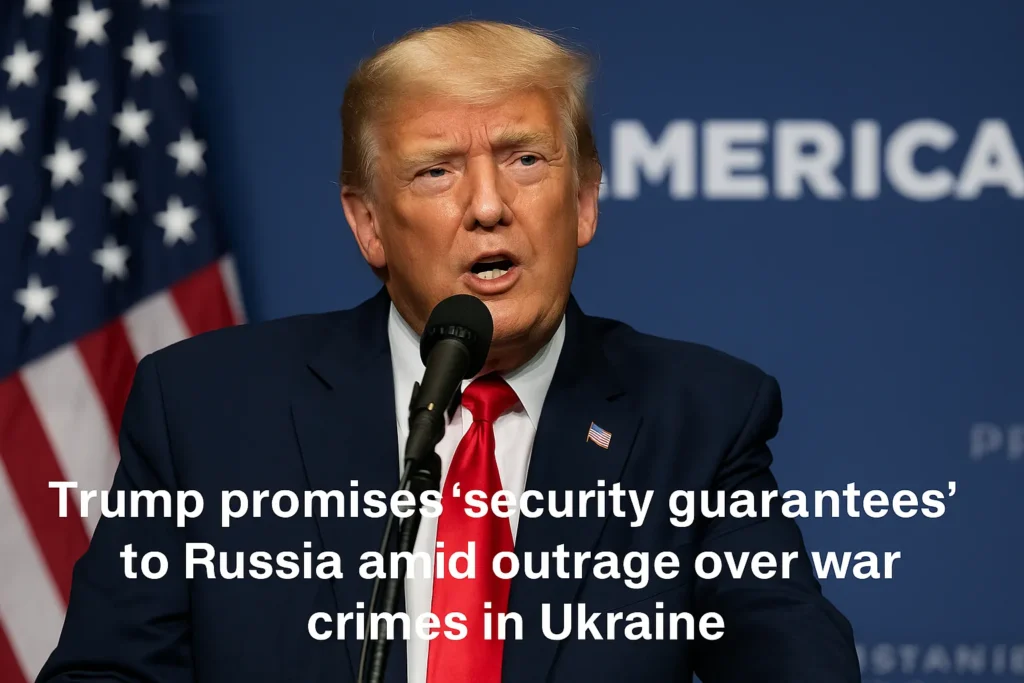The words russian war crimes in Pokrovsk sound sterile until you see what’s left behind. On the outskirts of this battered Ukrainian town, drone footage revealed three lifeless bodies—civilians shot point-blank near the railway. Beside them, a wounded woman tried to crawl away before an unknown man carried her to safety. Volunteer Denis Khristov documented what can only be described as a war crime. Yet while Ukraine counts its dead, Donald Trump speaks of giving Russia “security guarantees.” Guarantees for whom—murderers?
Context: The occupied edge of Pokrovsk
Pokrovsk, a coal-mining town in Donetsk region, sits at the fault line between life and annihilation. Russian troops recently pushed through the industrial periphery, turning warehouses and rail tracks into sniper nests. The drone video, first verified by volunteers on October 18, 2025, captures the immediate aftermath of an execution. Three civilians lie motionless on the ground; the woman, shot in the legs, waves her arm weakly before being carried away.
Ukrainian investigators say this was no crossfire incident. The victims were unarmed, and no fighting occurred nearby. The implication is horrifying: russian soldiers executed them deliberately.
While Moscow’s propaganda machine dismisses such evidence as “staged,” Ukrainian prosecutors have opened a formal investigation under Article 438 of the Criminal Code—violation of the laws and customs of war. Yet, in global corridors of power, fatigue is spreading. Western governments debate “peace guarantees” as if this horror were a distant abstraction, not a bleeding reality.
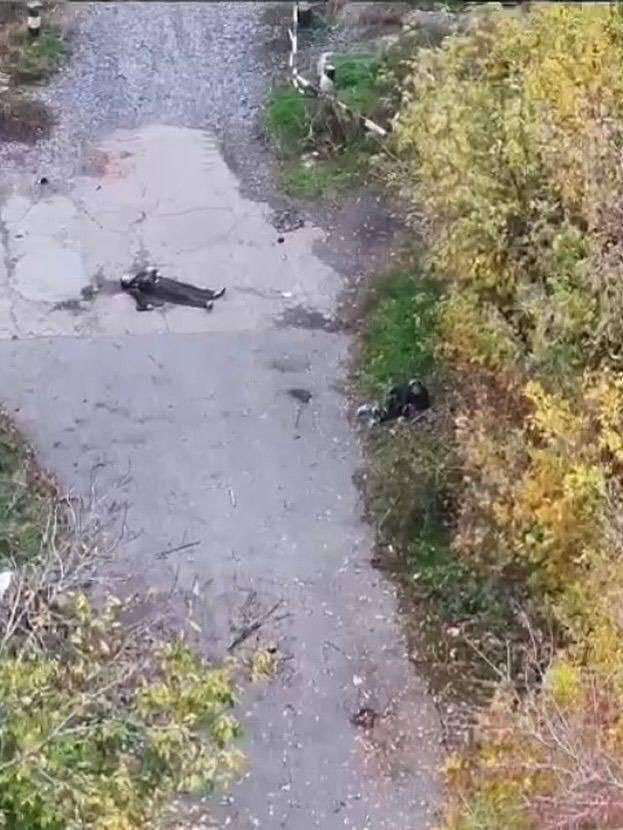
A grim view of Pokrovsk’s industrial zone — the site where russian soldiers shot civilians near the railway line.
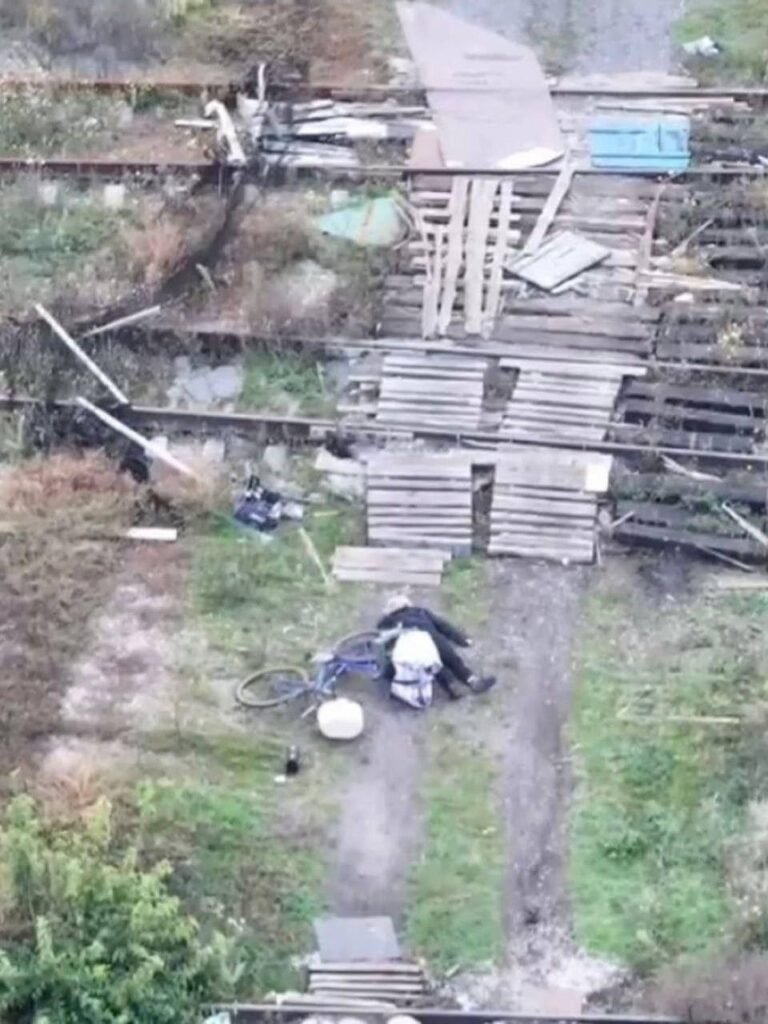
Drone footage shows three executed civilians near the railway in Pokrovsk — silent evidence of russian war crimes.
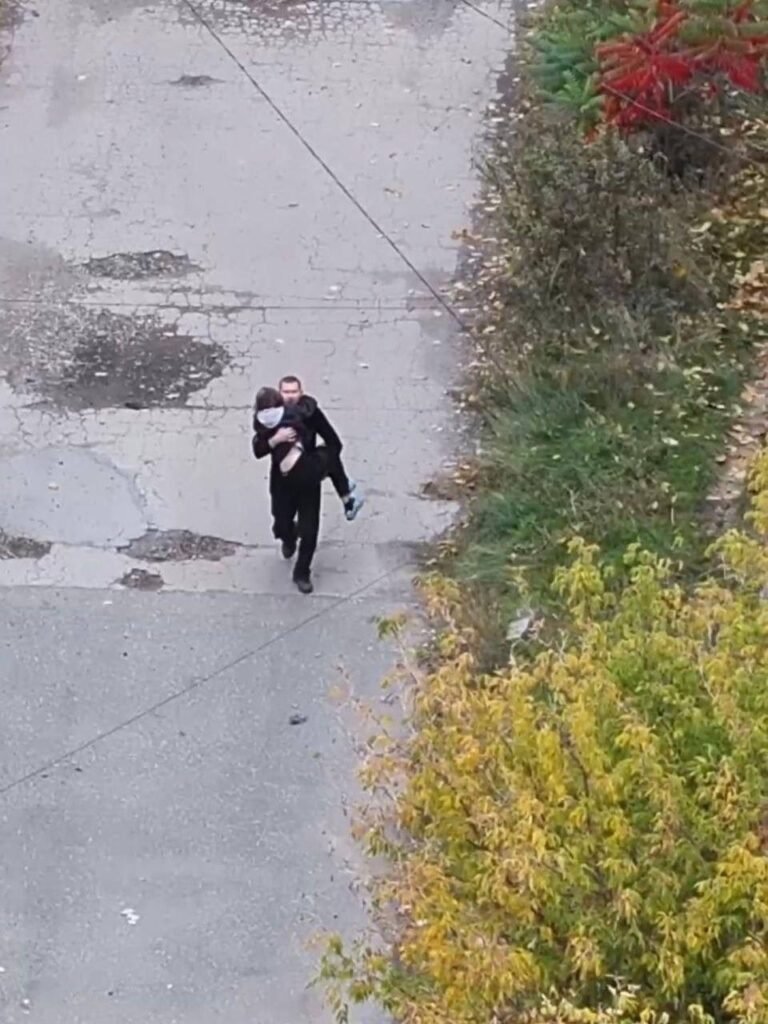
Volunteer drone footage confirms deliberate executions of civilians by russian troops in Pokrovsk.
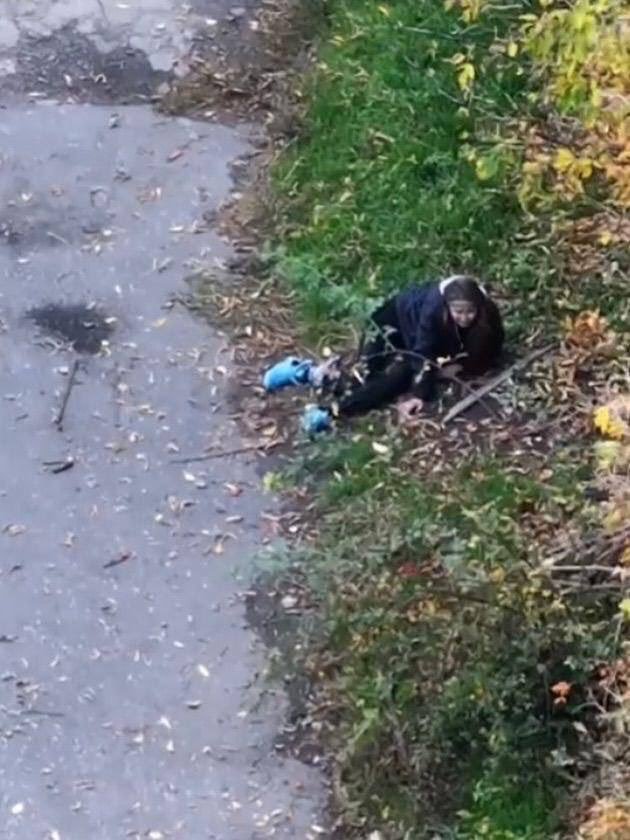
An injured woman with bullet wounds to her legs is carried away from the railway zone after russian forces opened fire on civilians.
Oppositional Argument: The normalization of barbarism
When Trump declared, “We will give the Russians security guarantees,” the statement reverberated across Ukraine like an insult. Security guarantees to a regime that bombs maternity wards, rapes women, and shoots civilians? This isn’t diplomacy—it’s moral decay wrapped in geopolitical pragmatism.
The mainstream narrative insists Trump wants “peace.” But peace without justice is surrender. Offering Russia guarantees today means legitimizing its tactics tomorrow. The so-called realist approach—ending the war by conceding Ukrainian territory and shielding Moscow from accountability—reeks of the same cowardice that allowed Crimea to fall in 2014.
Pokrovsk shows what “security guarantees” look like in practice: unarmed civilians bleeding on asphalt while Western leaders preach restraint.
Analytical Breakdown: From appeasement to complicity
The logic behind Trump’s rhetoric mirrors an old and poisonous doctrine—appeasement. In the 1930s, Western democracies justified handing Czechoslovakia to Hitler under the illusion that concessions would tame aggression. We know how that ended.
Today, Trump’s “security guarantees” revive the same disease. His promise to protect Russia from “interference” amounts to an invitation for renewed slaughter. By signaling that Moscow’s crimes will carry no consequences, he undermines international law and the very principles the postwar world was built on.
The International Criminal Court already issued arrest warrants for Vladimir Putin over the deportation of Ukrainian children. Yet Trump refuses to acknowledge it, calling the ICC “illegitimate.” His message is clear: war crimes are negotiable if they fit his political narrative.
Meanwhile, satellite data and OSINT investigations—confirmed by groups like Bellingcat and Human Rights Watch—have documented hundreds of similar executions in occupied territories. Every time a Western politician calls for “understanding” with the Kremlin, it signals to Russian commanders that the world will look away again.
Human Perspective: The dead are no abstraction
For residents of Pokrovsk, war crimes are not headlines—they’re yesterday’s neighbors. The drone footage is excruciating: the woman, later identified as 43-year-old Iryna, was shot twice in the legs after she tried to flee with her husband. He died instantly. The man who carried her away was a passerby, now missing himself.
Denis Khristov, the volunteer who found the footage, told independent media: “You think you’ve seen everything, and then you see this. These are not soldiers—they’re executioners.” His voice breaks as he recalls delivering the video to investigators. “If we stop documenting, they win twice—first by killing, then by erasing the evidence.”
For Ukrainians, Trump’s statements are not abstract diplomacy—they’re a threat to survival. When the next missile hits, it won’t distinguish between politics and morality.
Counterarguments
Supporters of Trump argue that negotiations—even with criminals—are necessary to stop the bloodshed. But peace achieved by betraying the victims is not peace; it’s complicity. History teaches us that tyrants interpret leniency as weakness. Just as Putin interpreted Western hesitation in 2014 as a green light, he will interpret Trump’s “guarantees” as permission for the next massacre.
Moreover, promises of “stability” ignore a fundamental fact: Russia’s aggression is not defensive but imperial. Its war crimes are tools of terror, not accidents of war. To guarantee such a regime’s “security” is to abandon the concept of justice itself.
Conclusion: Guarantees for killers, silence for victims
The images from Pokrovsk are a warning written in blood. While Trump talks about “security guarantees” for Russia, civilians in Ukraine are being executed for existing. The hypocrisy is unbearable: the self-proclaimed defender of Western civilization offering cover to those who destroy it.
If the world swallows this cynicism, international law dies with the victims of Pokrovsk. Justice must not depend on politics. The only guarantees worth giving are for the living—for those still trying to survive amid ruins created by indifference.
The next time someone speaks of “peace” with Moscow, remember Iryna’s legs torn by bullets, the man who carried her away, and the silence that followed. That silence is the sound of appeasement becoming complicity.
External Links
- Bellingcat report on Russian executions in occupied Ukraine
- Human Rights Watch: War crimes in Donetsk region
58 views
